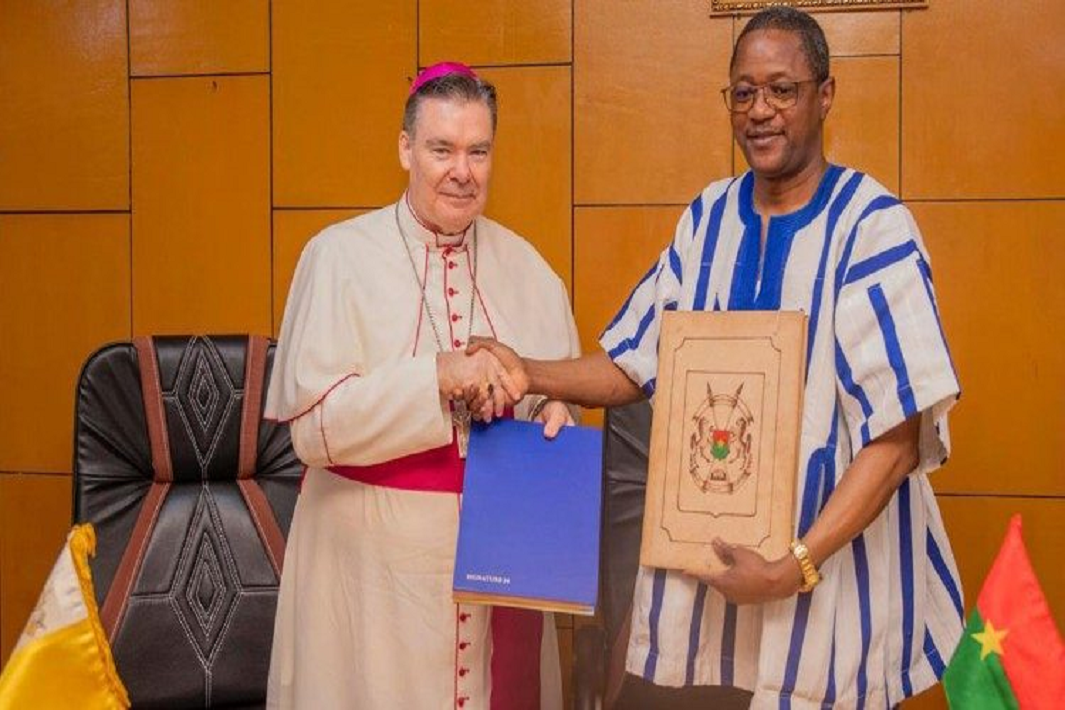By Wesley Omondi
VATICAN CITY, OCTOBER 12, 2024 (CISA)– A landmark agreement was signed between the Holy See and the State of Burkina Faso, marking a significant step in the legal recognition of the Catholic Church’s activities within the West African nation on October 11, 2024. The signing took place in Ouagadougou at the Ministry of Foreign Affairs of Burkina Faso.
The Second Additional Protocol to the original agreement was signed on behalf of the Holy See by Archbishop Michael F. Crotty, the Apostolic Nuncio to Burkina Faso. Representing Burkina Faso was Mr. Karamoko Jean Marie Traore, the Minister of Foreign Affairs, Regional Cooperation, and Citizens Abroad. This document, which consists of a preamble, seven articles, and an annex, came into immediate effect on the day it was signed.
The signing of this Second Additional Protocol builds upon an existing agreement between the Holy See and Burkina Faso, which dates back to July 12, 2019. The first agreement established the legal framework for the Catholic Church’s presence in Burkina Faso and recognized its legal status within the country’s constitution. The initial protocol outlined provisions ensuring that the Church’s religious, educational, and social activities could be carried out within a defined legal context.
At the time of the 2019 signing, the Church had expressed hopes that the agreement would allow for more efficient collaboration between the government and the Church. This new Protocol is designed to further streamline the process of granting legal recognition to canonical legal persons, making it easier for the Church to establish new entities in Burkina Faso.
In addition to facilitating the Church’s missionary and social work, the new protocol reflects a broader relationship between the Holy See and Burkina Faso. The Catholic Church has long been a key player in promoting education, healthcare, and humanitarian efforts in the country, and this agreement enhances its capacity to continue these initiatives.
The Second Additional Protocol further enhances the Church’s ability to operate within a structured legal framework, providing greater autonomy and flexibility in pursuing its mission.
